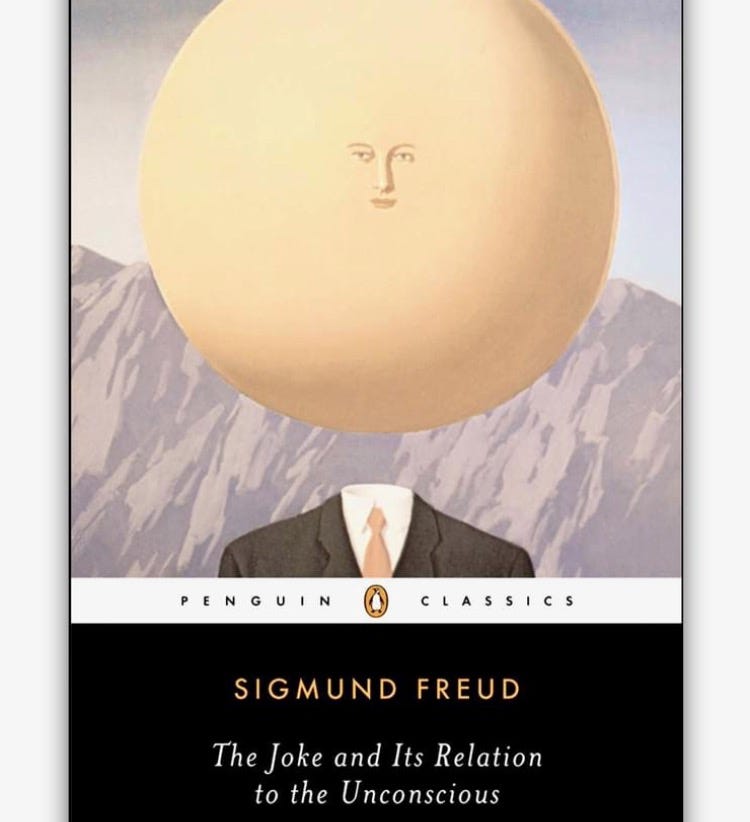Link is PDF download from INTERNET ARCHIVES.
ia802907.us.archive.org/17/items/Sigmun…
https://ia802907.us.archive.org/17/items/SigmundFreud/Sigmund%20Freud%20%5B1905%5D%20Jokes%20and%20their%20Relation%20to%20the%20Unconscious%20%28James%20Strachey%20translation%2C%201955%29.pdf
Written in 1905. Translated.
THE JOKE AND ITS RELATION TO THE UNCONSCIOUS.
FIRST PAGE:
JOKES AND THEIR RELATION TO THE UNCONSCIOUS A. ANALYTIC PART I INTRODUCTION
Anyone who has at any time had occasion to enquire from the literature of aesthetics and psychology what light can be thrown on the nature of jokes and on the position they occupy will probably have to admit that jokes have not received nearly as much philosophical consideration as they deserve in view of the part they play in our mental life.
Only a small number of thinkers can be named who have entered at all deeply into the problems of jokes. Among those who have discussed jokes, however, are such famous names as those of the novelist Jean Paul (Richter) and of the philosophers Theodor Vischer, Kuno Fischer and Theodor Lipps.
But even with these writers the subject of jokes lies in the background, while the main interest of their enquiry is turned to the more comprehensive and attractive problem of the comic.
The first impression one derives from the literature is that it is quite impracticable to deal with jokes otherwise than in connection with the comic.
According to Lipps (1898),¹ a joke is ‘something comic which is entirely subjective’ - that is, something comic ‘which we produce, which is attached to action of ours as such, to which we invariably stand in the relation of subject and never of object, not even of voluntary object’ (ibid., 80). This is explained further by a remark to the effect that in general we call a joke ‘any conscious and successful evocation of what is comic, whether the comic of observation or of situation’ (ibid., 78).

